We made a return visit to Kampung Binjai in Pahang, where we installed a water filtration system as part of Laneige’s Waterful Sharing Campaign back in 2016. The orang asli here used to rely on water from a well and pond for their daily needs. Their drinking water was cloudy with an earthy aftertaste, but they had to bear with it as it was the only water source available. Now, a pump draws water from the well into a storage tank and filter system within the village. The filtered water is then distributed to each house through connecting pipes.

These were the ponds used for washing clothes. The children’s school uniforms would appear yellowish after washing with this water and have a bad odour.
Women’s Burdens Lessened
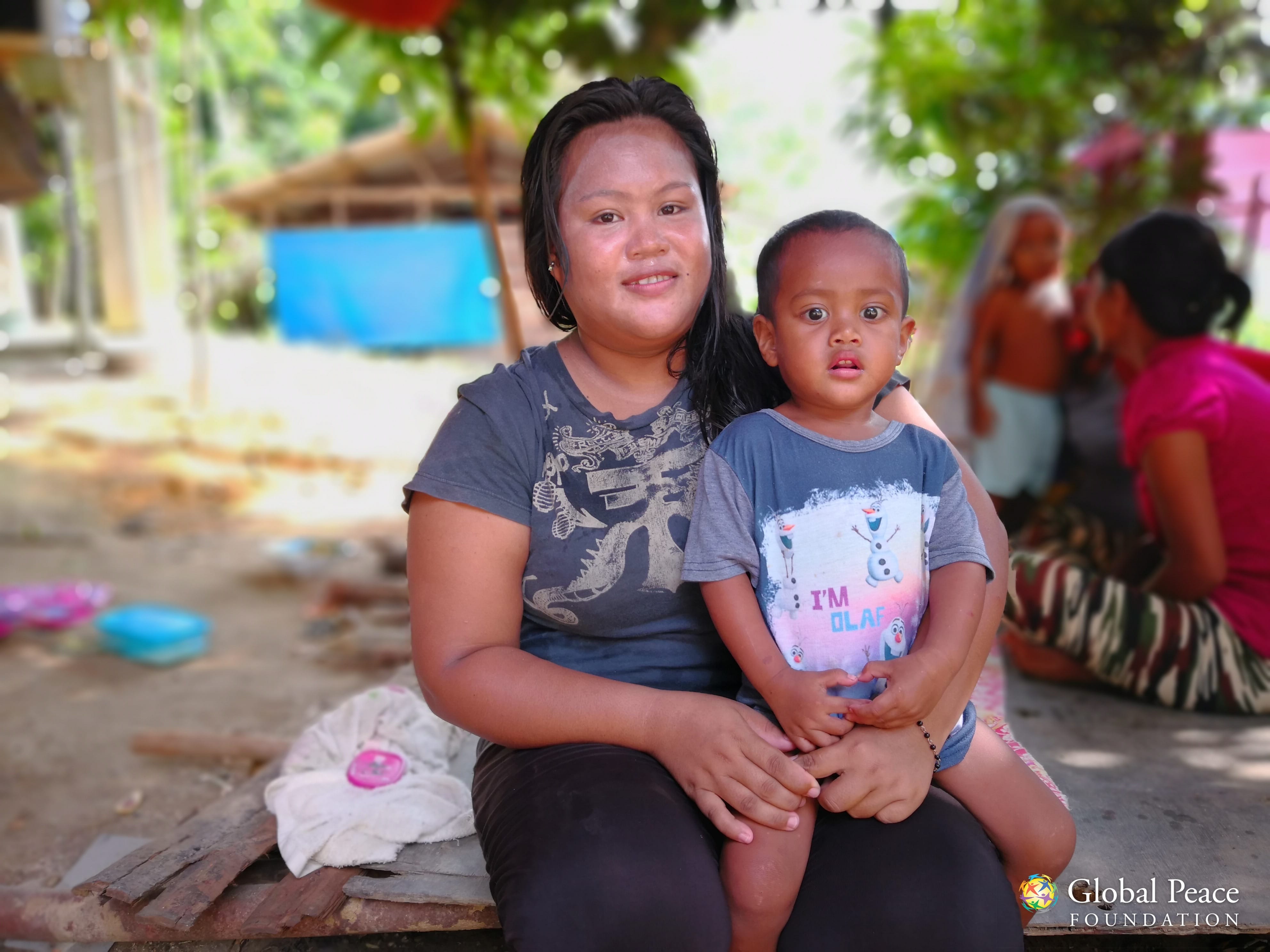
Nisa with her son, Alif Azmi.
Nisa, like all the other women here, is a housewife. From day to night, she would do the housework and take care of her children. Her husband works odd jobs in Muadzam Shah, the nearby town, and she is left alone for most of the day. Fetching water used to take up a big part of her daily chores; she would carry a 6 litre (1.5 gallon) water bottle in a traditional Jakun woven basket strapped to her head a few times a day.
Nisa recalls her life two years ago, back when the water filter and piping was yet to be installed.
“Before this, we collected water from the well downhill. It was heavy work and I had to do this four to five times a day. Now, we have pipes that go into each home so it’s much easier to get water to cook, wash, and drink. The water is cleaner too, we used to have kudis (scabies) and itchy skin but my family and I are much better now.”
“We used to save and stinge on water, only using it when we absolutely needed to. But now thankfully, we can shower, wash our clothes, and drink water more frequently. It shows in our health too, we don’t suffer from diarrhoea and fevers as much as before. I feel less worried about water now and I have more time to spend with my family since I don’t have to fetch water several times a day anymore.”
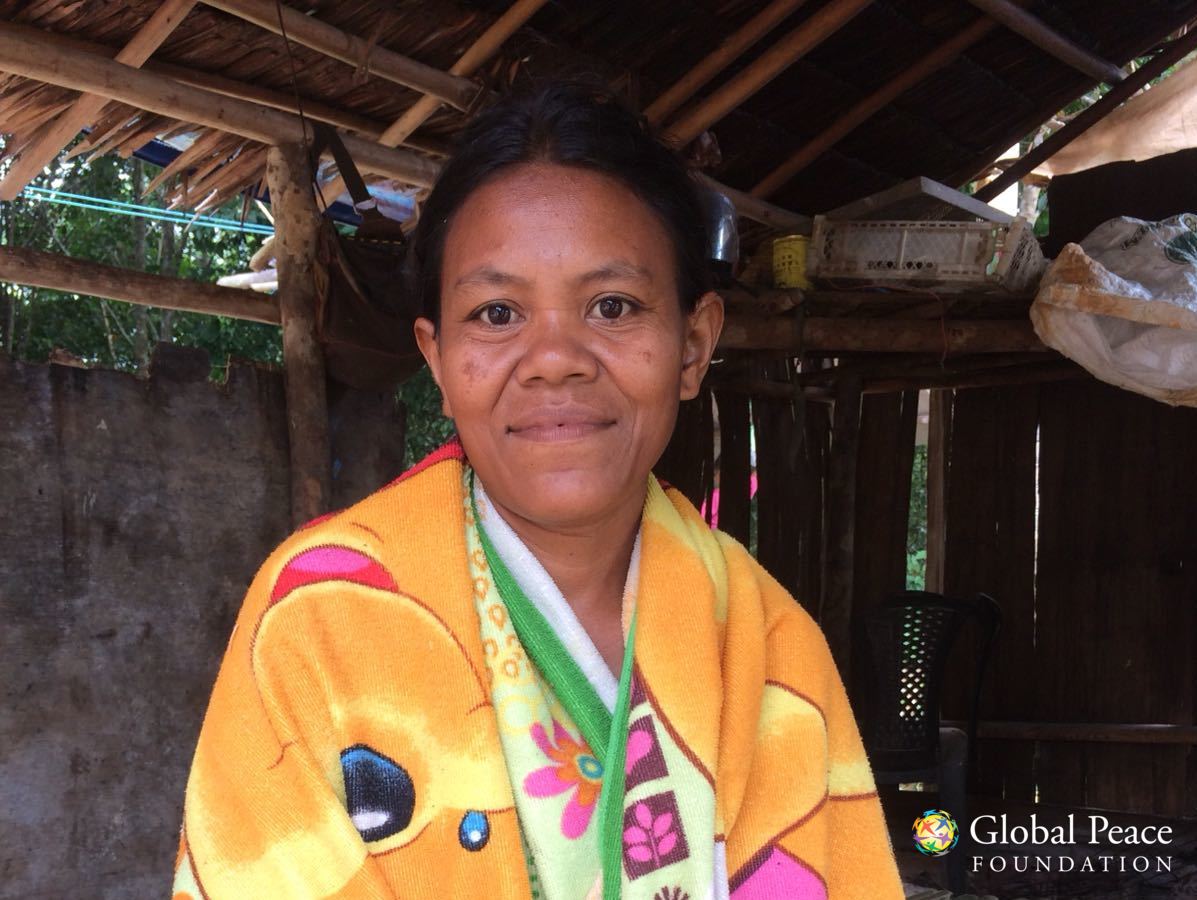
Diyana feels relieved and finds life more comfortable now. She no longer needs to keep a full tank of water in her home for fear that rain would turn the well water muddy, making it unsuitable for drinking.
Relief for the Elderly

Niru with her husband, Nasib. They are the parents of tok batin Endang, the village head.
Niru lives with her husband Nasib; they are the elders here in Binjai. She doesn’t know how old she is but we estimate her to be in her 70s. Nasib is deaf and has poor vision due to cataracts in both eyes. He is unable to assist Niru in the housework and depends on her to care for him.
“I used to fetch water from the well myself. It’s heavy and I get tired easily so I could only do it twice a day.” She relies on the help of her children and grandchildren to fetch more water if she needs it. Niru laments that she is getting old and something as simple as walking makes her short of breath and tire easily. Now, she just sits at home and rests.
Healthier Children
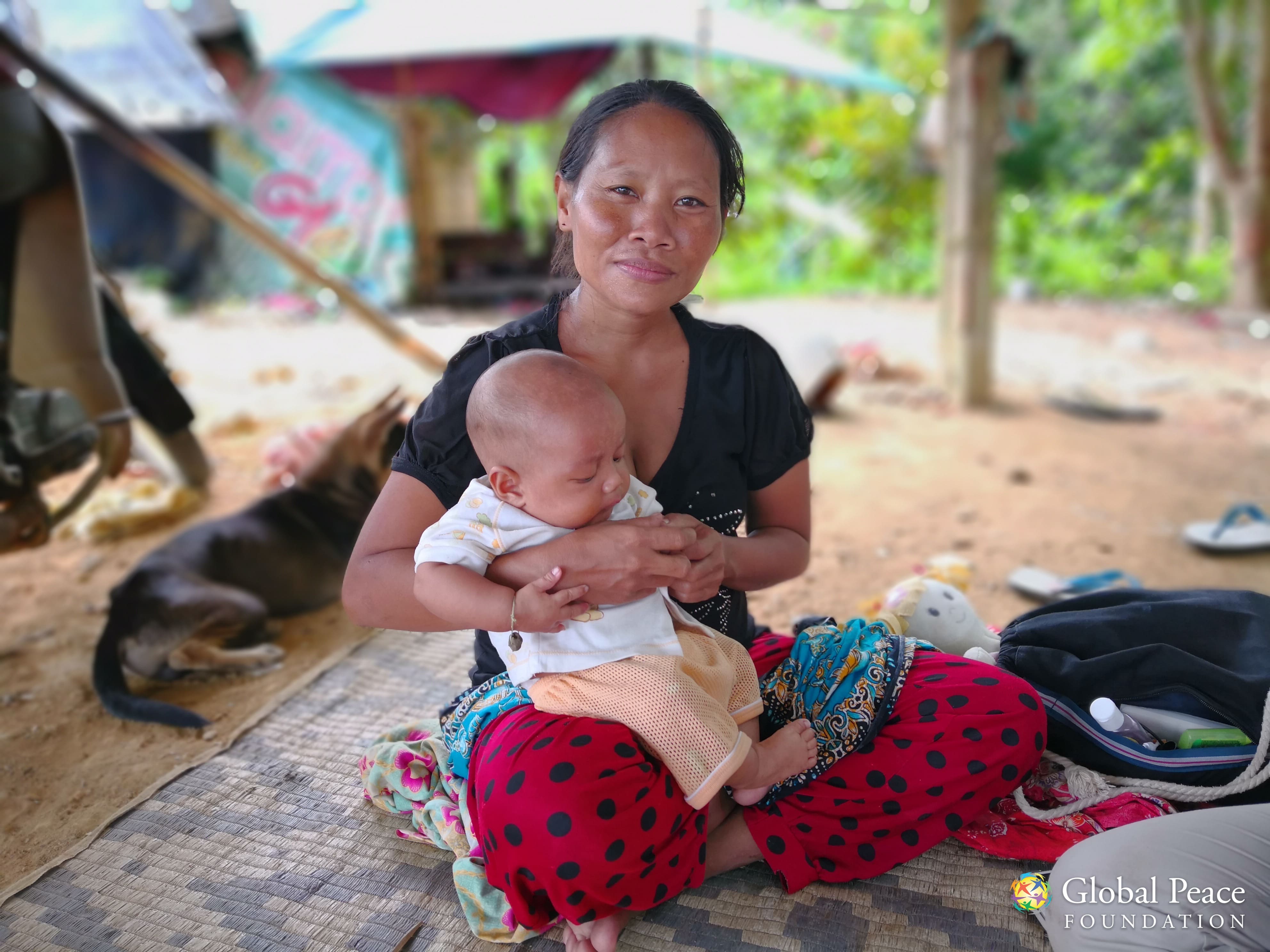
Yuni with her baby, Ayuma.
We come upon a group of women and children sitting in a communal area. The women chat with each other to pass the time while tending to their babies. The older kids chase each other around the rubber trees, darting in and out of open doorways with an agility that comes from long days of play. Yuni, one of the women, welcomes us with a gentle smile.
The group of women here live a little further from the main cluster. This means that the well is also further away from them. Yuni tells us that the pipes lead to each of their houses and the water supply is sufficient for their daily use.
“Last time, I had to fetch water about five to six times a day because I have a big family. By evening, my whole body aches. The next day, I have to do it all over again.” She is happy that it is easier now and that she has one less worry off her mind.
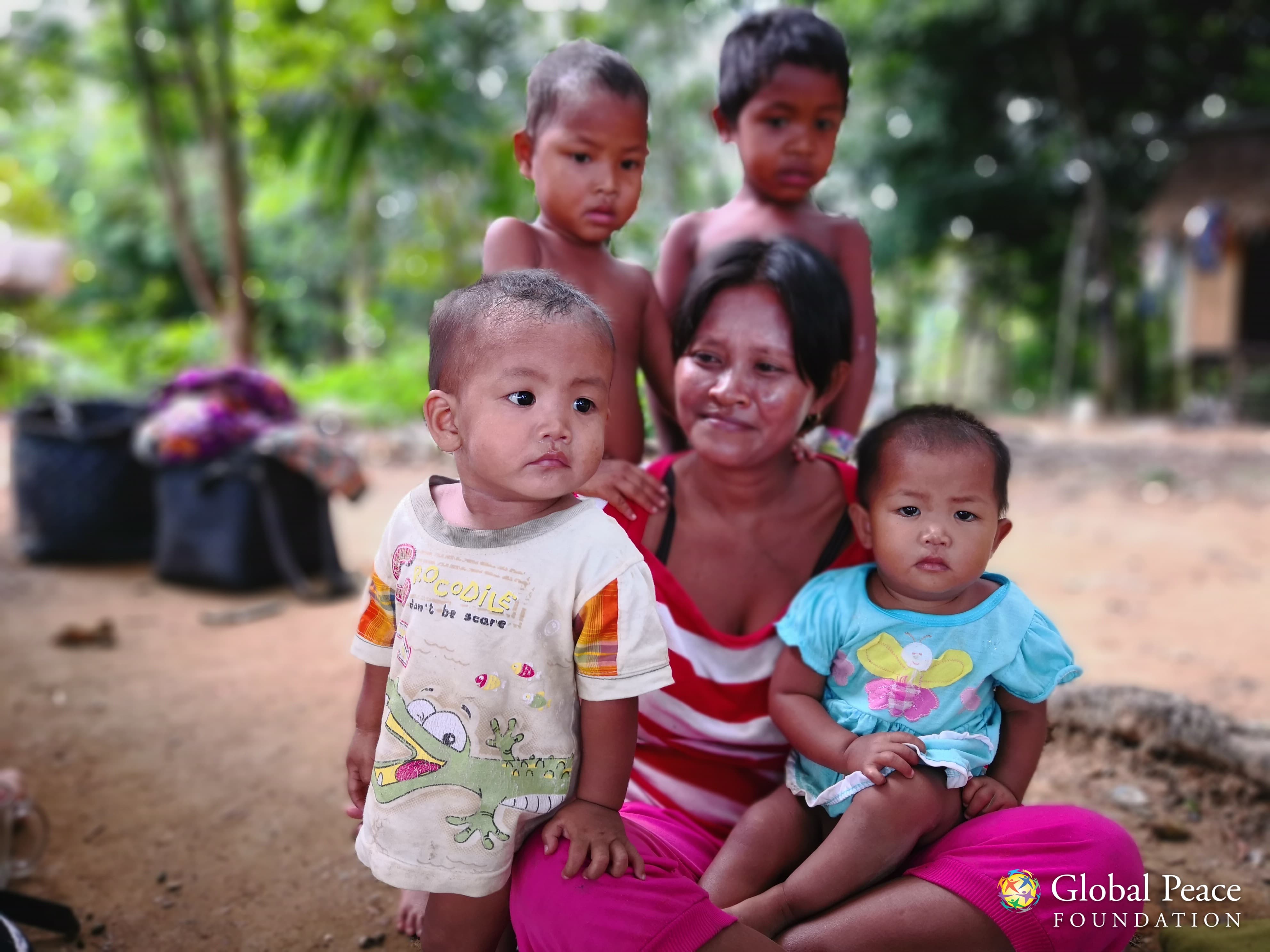
A mother with her twin babies and older children.
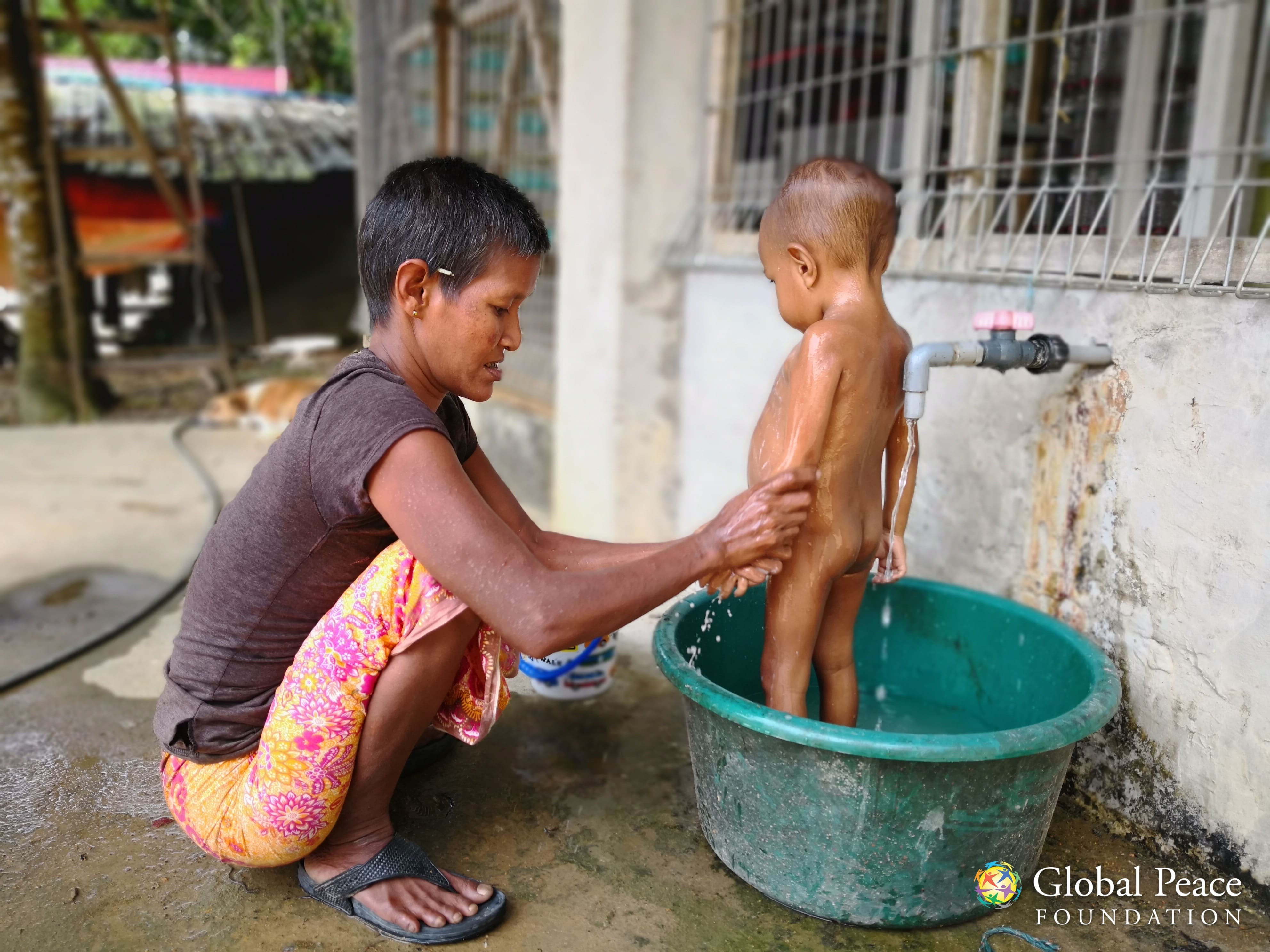
A grandmother bathing her grandson with filtered water. All the children in the village now bathe three times a day on average with clean water, reducing the occurrence of skin disease and fevers.
Waterful Sharing Campaign to Continue Impacting Lives
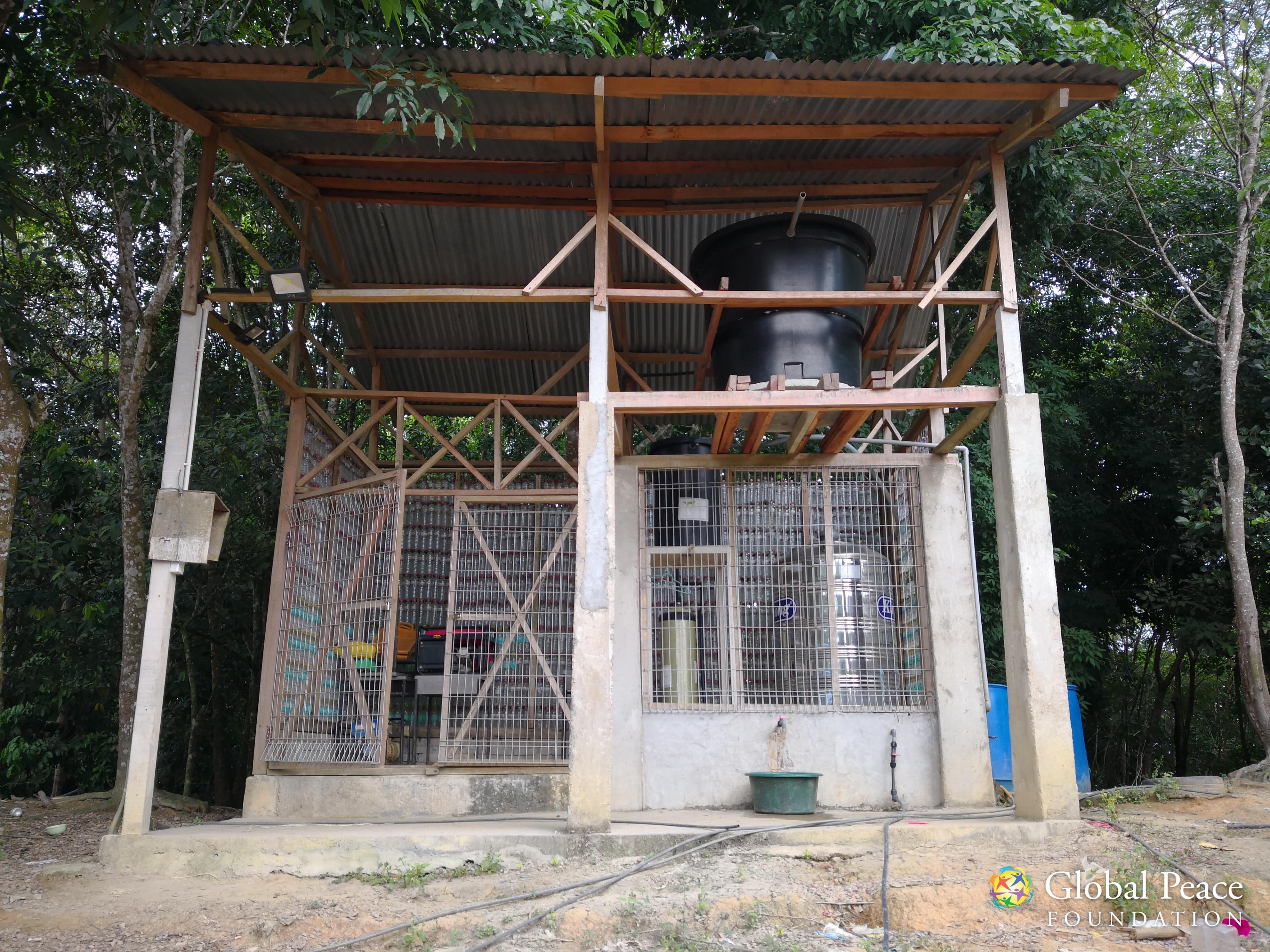
The water filter and storage shed is in good condition; it is clean and well-maintained.

Water pipes leading into each house.
Kampung Binjai was one of the first villages that we approached as part of Laneige’s Waterful Sharing Campaign in 2016. The project helped over 150 people living in this community. Since then, we have worked to bring clean water to four other villages, benefiting about 1,500 people.
This year, we are continuing our partnership with Laneige to provide clean water to 770 orang asli in six villages across Pahang and Perak. In echoing our vision, all of us are part of one human family and everyone deserves equality regardless of race, religion, or background. We hope that this, along with our future planned initiatives, would help narrow the inequality gap faced by these marginalised communities.
Written by
Yong Joy Anne, Storyteller
![]()






